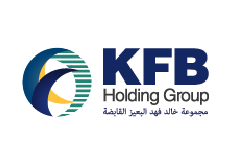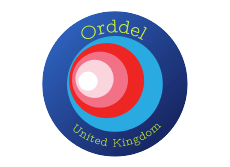Blogs


Operational Efficiency Using Odoo ERP
Odoo February 8th, 2022
For all corporate applications, ERP has developed into an intriguing, dependable, and satisfying approach. The company may easily finish tasks and move in the direction of increased growth and productivity. Open source ERP deployment is very popular right now. The firm can save time and money by implementing the proper ERP implementation. Odoo is an open ERP, therefore it can speed up and lower the cost of implementation. The ability to lower operating costs and boost return on investment is another benefit of implementing odoo ERP.
Process efficiency will grow with the adoption of ERP. Utilizing Odoo ERP Solutions, all corporate departments and their functionalities will be connected. Once you've implemented the Odoo ERP Solution, you can monitor every step and examine every facet of your daily operations. Each of these helps to validate the company's growth.
1. Finance and Accounting Module:
This module controls how much money comes in and goes out. This module continuously keeps track of all kinds of transactions, including those involving money, taxes, bank transfers, ledgers, and balance sheets, among others. Financial reports can be simply generated with this module. All financial and accounting-related information will be displayed to you when you select the Finance and Accounting module.
2. CRM - Customer Relation Management:
Customer relationship management, or CRM, is another crucial ERP feature. It aids in maintaining all information, including contact information, history (if any), relevant contracts, meetings, and transactions made by the consumer, for future use as a guide. Additionally, improved customer service and a better customer complaint management system aid to increase sales and subsequently output. Sales and CRM management can work together to increase opportunities.
3. HRM - Human Resource Management Module:
This Human Resource module's primary goal is to offer a potent HR management solution. This module can be used to track and monitor each employee's performance, manage leave requests, manage attendance, and keep employee data. The payroll system in the HR module is one component that aids in salaries and payment reporting.
4. Engineering and Production Module:
The production and distribution of commodities fall under the purview of this module. It assists in production scheduling, the usage of machinery and raw supplies, production monitoring, forecasting, and reporting.
5. Purchase Module:
All operations involving purchases are managed by this module. It is possible to use it to keep track of purchases, update various reports and stocks, communicate, receive, and record quotations and purchase orders, and establish connections between products and suppliers. The inventory module, engineering module, and manufacturing module can all be connected with the purchase module for easy updating of all details.
6. Inventory Module:
The stock information can be tracked using the inventory module. It is therefore possible to manage inventory in terms of master units, reporting, and stock usage. The buy and inventory modules working together will provide an added benefit.
7. SCM - Supply Chain Management Module:
Supply Chain Management Modules are typically used to control the movement of goods from manufacturers to consumers. monitoring shipments and transportation, keeping an eye on demand and supply, and keeping track of refunds and replacements for purchases.
8. Sales Management Module:
involves sales processes primarily Tasks like sales enquiry, inquiry analysis and processing, quotation development, sales order receiving, sales invoice production and applicable taxes, dispatch/shipping of goods or services, and tracking pending sales orders may all be accomplished easily with the help of the sales management module. The customer relationship management module and the sales management module can be linked for greater performance.
You might be wondering why we choose Odoo ERP specifically at this point ?
As usual, we will give you the answer;
- Simple to use
- Optimal Business Procedures.
- Simple Information sharing within the Company.
- Speed up Task Completion.
- Implementation at a Lower Cost.
- Full and Early ROI ( Return On Investment )
- Complete and Flexible.
- Flexible and Appropriate for any setting.










